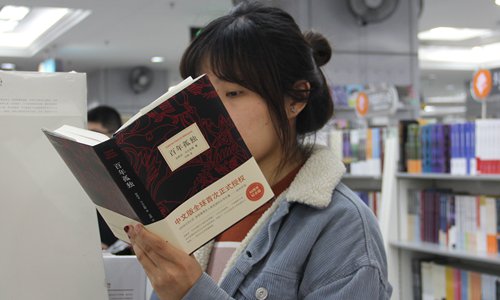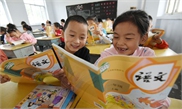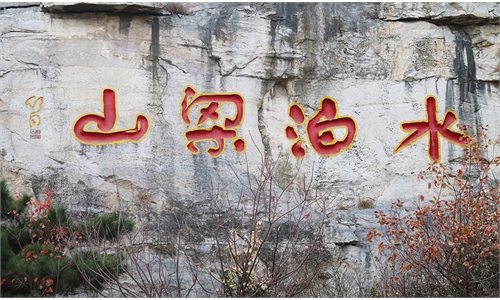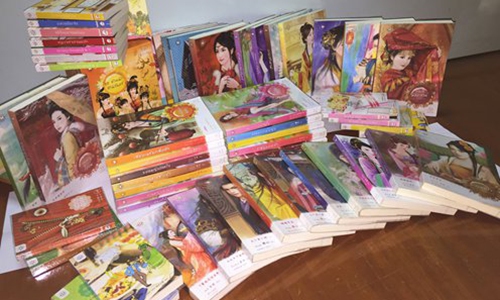ARTS / CULTURE & LEISURE
Top 12 web novelists awarded
Traditional culture takes center stage for online literature

A customer reads the Chinese version of One Hundred Years of Solitude at the Beijing Book Building on March 10. Top: A bookshelf featuring García Márquez’s novels on sale at the Beijing Book Building Photos: Wang Qi/GT
From Confucian classics to folk customs, traditional Chinese culture is taking center stage in the web novels compositions, according to the results of a most recent Chinese top 12 web novelists list released on Tuesday.Including writer Qingheyishen (pen name), whose work Up in the Heaven was included in the British Library in September, a total of 12 novelists have been awarded the 2022 Internet Literature Model Writer, a prize set up by Yuewen, a pioneering group for China's online literature market.
Taking Qingheyishen and the author's classical Xianxia (an exclusive Chinese Taoism-based Wuxia genre) web novel Up in the Heaven as an example, the story is based on the 16th-century Chinese book The Investiture of the Gods, and the novel tells the story of a young Taoist disciple who's engaged in revenge and xiuxian - to practice and cultivate as a higher-level immortal in Chinese mythology.
"The ancient rhyme of my works lies in the nourishment I gained from traditional Chinese culture. It lies in the poems and songs, and even in couplets, edicts, historical documentaries and classics," Qingheyishen told the Global Times.
It is easy to tell that the interpretation and application of traditional Chinese culture accounts for most of the web novels created by the listed writers this time.
"With a history of 5,000 years, and a strong foundation of tradition, there are 'pearls buried under the sinking sand.' And what we've done is to simplify the myths and legends, anecdotes and folk arts to reach a broader readership," another award-winning writer noted.
The writer's work Suzhu, or Folklore Master, interweaves the Chinese folklore and science fiction, to explore the expansion of the relationship between human beings and civilization.
As those web novels are becoming increasingly important in exporting Chinese culture, some reasons can be attributed to those young writers and their incredibly unconstrained minds, said Wang Xin, a Beijing-based web novelist and critic.
"On the one hand, traditional culture has been refined and entertained by the young people in their web literature, where they made it more interesting to spread traditional culture and therefore enhance its appeal to young readers around the world," Wang told the Global Times. "On the other hand, it reflects a more mature and skillful use of traditional culture by young Chinese, which is very precious especially in reviving our traditional culture."
The list once again reflects the advantages and vitality of young blood. More than 80 percent of the selected writers are born in the 1990s, while half of them were born after 1995.
Among the awarded writers, Huweidebi (pen name) creatively integrated the fictional cosmic entity Cthulhu into his oriental work Daoguiyixian, or The Strange Fairy, where the author perfectly fused the Cthulhu mythos and Chinese folklore.
Another writer Chuzoubawanli (pen name) combined the well-known mythological characters with the Confucianism and Taoism in his work I Become a Saint with Idle Books, leading a rise of the modernized Chinese classics.



